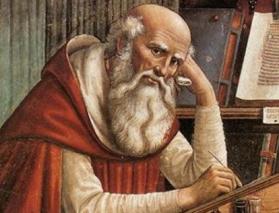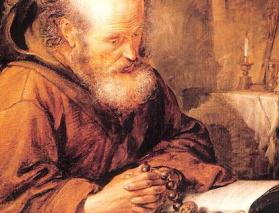Augustine spends a lot of time in various treatises, especially in City of God, Book 12, explaining the nature of time as a created reality and distinguishing the Christian view of creation from Greek, especially Platonic, views of eternal matter and an eternal world. He believes the Platonic view of time to be philosophically untenable, and spiritually disastrous.
On the one hand, if the soul is an eternal substance, how can it change? Yet Augustine thinks souls do change. A philosophical view that violates our common experience of change can’t be right.
On the other hand, the creation account is also the beginning of a linear understanding of history, as opposed to the common cyclical accounts of history found among pagans. One of Augustine’s arguments here is that if history moves in cycles, there is no possibility of permanent blessedness.
Thus, the doctrine of creation not only supports the reality of change, but also a necessary doctrine of the possibility of permanence (11.4). And this possibility of permanence also means that souls can reach a state of eternal blessedness without assuming any alteration in the plan of God.
These suggestions have important implications for Augustine’s treatment of the two cities. Importantly, he places the cities in time, each on a progress toward a heavenly or hellish goal. That is itself an implication of his understanding of creation and time: Created things are temporal and changeable, and the cities are temporal and changeable as everything else in creation.
At the same time, this theology enables him to give philosophical justification to a notion of permanent bliss in the heavenly city. This too is essential to any plausible philosophy or spirituality. The cities are defined in terms of their opposing ends, and the pilgrims who make up the city of God are what they are because they journey toward a heavenly city.
If the bliss of the heavenly city is only temporary, if it’s not permanent, then the city of God is amorphous. It presents no permanent goal or form toward which to move, and so it can never find a place to rest. Rest becomes simply impossible, and each of us is condemned to having a restless soul and living in a restless city.














